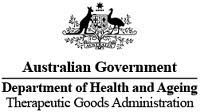WA flu vaccination report
October 19, 2010

THE Therapeutic Goods
Administration has issued a formal
response to a damning report
commissioned by the Western
Australian Health Department into
the handling of the adverse events
investigation during the 2010 WA
free seasonal flu vaccine program.
The report by Professor Bryant
Stokes followed the suspension of
the free flu vaccine for under-fives
program on 22 Apr - four weeks
after it was launched - when it was
discovered that the rate of febrile
convulsions caused by CSL’s Fluvax
vaccine was nine times higher than
usual.
Stokes found the decision to
suspend the program as soon as
additional side effects were known
was correct, but has highlighted
what he describes as “serious
deficiencies in the current reporting
mechanisms for these events”.
He raised several areas of
concern, including a lack of
monitoring of vaccine safety,
deficiencies in current reporting
mechanisms, a slow response to
the issue and “perceived conflicts
of interest in the TGA’s role and its
funding”.
The TGA says that the Stokes
Review “contains a number of
fundamental misunderstandings
that have led to erroneous
conclusions,” and says that none
of the staff involved in the TGA
response were invited to provide
details of the TGA’s investigation.
“As a result, the Stokes Review
draws a number of inferences
about the Commonwealth’s
handling of this issue that are not
supported by the facts”.
Stokes claimed that surveillance
arrangements already in place for
the H1N1 vaccination program
should have been maintained.
Responding to what it calls “a
perceived lack of monitoring
vaccine safety the TGA said that in
addition to its system of
spontaneous reporting, vaccine
manufacturers are inspected for
quality and that the vaccines
themselves go-through rigorous
pre-market evaluation process.
“The Stokes Review claims that
although the World Health
Organization (WHO) had advised
all countries administering
pandemic vaccines to conduct
intensive monitoring for safety and
efficacy, this was not done in
Australia. This is incorrect,” the
TGA said.
Stokes also addressed what he
said was a “confusing” system of
dual reportage where adverse
responses can be reported to either
the national Dept of Health, State
Dept of Health or the TGA.
“Australia has one of the highest
per capita rates of reporting of
medicines adverse events in the
world, not because we are more
prone to side effects, but rather
because we have one of the most
effective adverse event reporting
frameworks in the world,” the TGA
responded.
The TGA also downplayed
suggestions by Stokes that vaccine
approval and monitoring functions
should be separated.
Stokes cited the US situation
where the FDA and CDC have
roles in monitoring safety, but the
TGA said this was an “inaccurate
characterisation” of the role of the
US organisations.
The above article was sent to subscribers in Pharmacy Daily's issue from 19 Oct 10To see the full newsletter, see the embedded issue below or CLICK HERE to download Pharmacy Daily from 19 Oct 10




